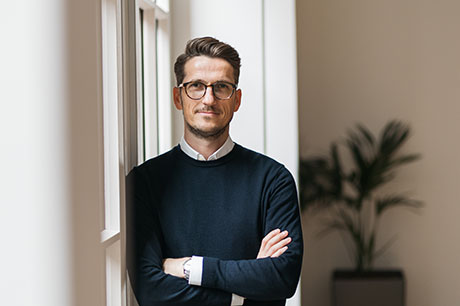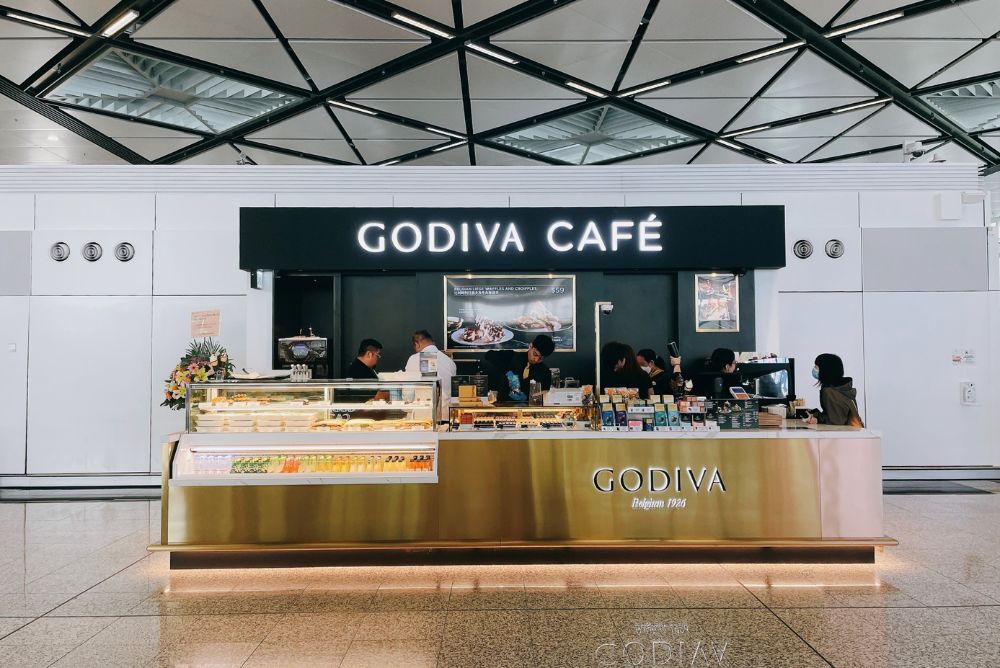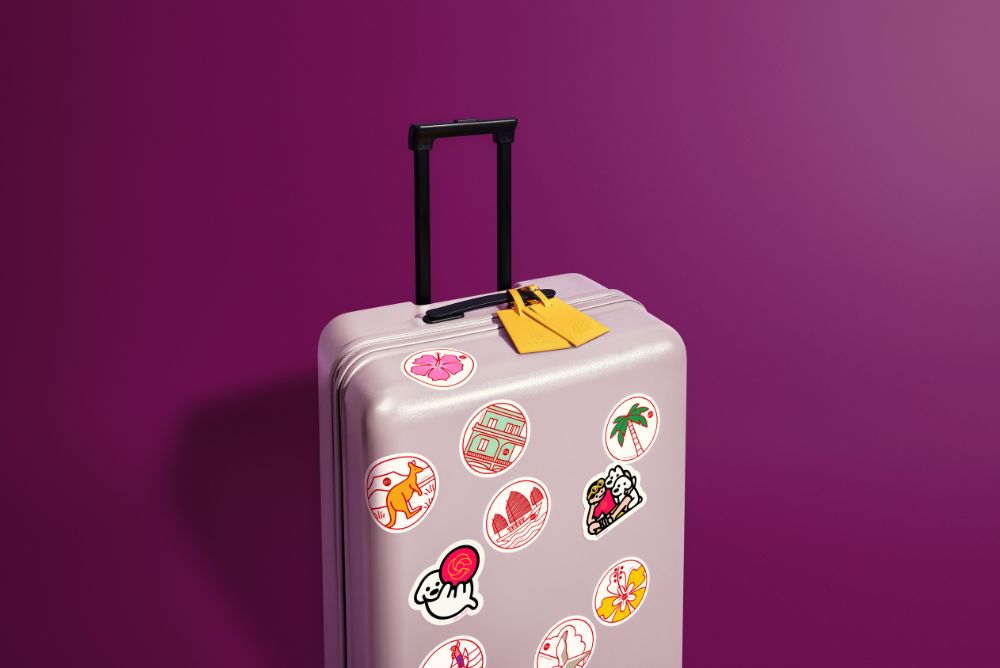TRSF interview: Distell’s Rachel Hawes says ‘meaning comes through action’
By Charlotte Turner |
 As explored in this month’s Travel Retail Sustainability Forum (TRSF) column (November issue), sustainability is a core component of Distell Group’s future growth strategies. In addition to reducing its carbon footprint, Distell is really ‘walking the talk’ when it comes to its Amarula brand.
As explored in this month’s Travel Retail Sustainability Forum (TRSF) column (November issue), sustainability is a core component of Distell Group’s future growth strategies. In addition to reducing its carbon footprint, Distell is really ‘walking the talk’ when it comes to its Amarula brand.
TRBusiness and Duty Free Innovation (DFI) are challenging this industry to significantly Reduce, Re-use and Recycle plastic, by signing up to the TR Plastic Pledge here, and joining a worldwide alliance which aims to coordinate a long overdue ‘green’ movement through the Travel Retail Sustainability Forum (TRSF).
Every month we dedicate a column to TRSF-related content in the magazine and more frequently online at TRBusiness.com.
Please find links to the TRSF Facebook and Linkedin pages here. To join the conversation on Twitter use #TRSF or #TRSustainabilityForum.
On 12 November, TRBusiness was invited to London’s Kew Gardens to attend a very special evening with inspirational, environmental crusader, Dr Paula Kahumbu, CEO of WildlifeDirect (Amarula’s conservation partner).
The event, involved a compelling presentation by Kahumbu about the work that WildlifeDirect does to protect the African elephant and how the partnership with Amarula supports this. The brand strengthened its commitment to the cause by donating £100 to elephant conservation on behalf of every person attending.
In an exclusive interview, Rachel Hawes GTR Head of Marketing for Distell International told TRBusiness about the importance of sustainability to Distell as a company, but she also shared details about her personal journey to becoming so passionate about this topic and others that are intrinsically connected, such as conservation and reducing humanity’s carbon footprint.

Amaula hosted a special conservation event at Kew Gardens on 12 November. Rachel Hawes appears in the far-left of the shot.
Can you tell us how important sustainability is to Distell as a business?
Sustainability has been a topic high on Distell’s agenda for some time now, but like most companies we are on a journey. Our focus for many years has been built around the societal aspect of sustainability, born out of being an African company.
We believe the communities in which we operate should be better off because we are there. We focus on sustainable economic initiatives to build enterprising communities and support local economies, with a particular focus on empowering women.
This work continues and grows year in year out however recently we’ve been expanding our sustainability work by kick starting supply chain and environmental initiatives like Green Up, Water Stewardship and Co-Go Initiatives.

L to R: Luke Maga, Managing Director, Distell GTR; Dr Paula Kahumbu, CEO Wildlife Direct and Charlotte Turner, Editorial Director, TRBusiness at the special Amaurla conservation event in Kew on 12 November.
Can you tell us how you came to be personally invested in helping Distell to become more sustainable and eco-conscious?
I have always been eco-conscious which stems from an upbringing by parents who had and still have an intrinsic love, passion and – most importantly – respect for nature and the role it plays in our health and well-being.
My involvement in helping Distell to become more sustainable was born through my personal passion and desire to make a positive change. For some time I know I was seen as ‘the one that always talked about the environment’ and went on at length about why everyone should recycle, why you should avoid certain (chemical-based) products. I was also the person that walked everywhere instead of using the car.
Some time ago I decided to take the initiative to move the London office to full recycling environment. It is easy to talk the talk, but meaning comes through action. From there I was asked to get involved in a project team that focusses around sustainability.
Now with more knowledge, understanding and training this has materialised into something far more meaningful with a greater purpose within the business. However, this is a journey and just when you think you’ve found the answer to a sustainability challenge you realise you are only tactically part of the issue, so you have rethink, relearn and come at it from a different angle.

Rachel Hawes together with Yves Linder of Goldkenn SA at the Kew conservation event. In 2014 Goldkenn Amarula chocolates were launched, with all royalties going to the Amarula Trust and elephant conservation.
The travel industry clearly has a huge negative impact on the environment. What do you think these travel-related businesses can/should do first to attempt to reduce their impacts?
Travel certainly does have a negative impact on the environment, however, flying, for example only contributes 2% to global CO2 emissions, but remains an easy target for environmental concerns. Each and every industry needs to do their fair share to help reduce the impact on the environment otherwise we will see movements like fly-shaming grow.

There are few more passionate about elephant conservation that Dr Paula Kahumbu, CEO Wildlife Direct.
Reducing emissions in the airline industry is very challenging, however modern aircraft designs have helped new models, such as the Boeing 787 Dreamliner and Airbus A350 to massively decrease fuel burn and therefore CO2.
Some airlines are taking the step of including CO2 emissions alongside flight prices to help consumers make informed decisions about the impact of their flights.
Airports have begun to introduce water bottle re-fill stations after security to cut down on single-use plastic, as well as recycling points around the airport. Electric vehicles are replacing older fossil fuel units to run around supplies. Toilets are being installed with zero water use, better public transport options are available and pick-up and drop-off charges are being applied for taxis and private cars.
Where airports could go further is to make the builds/environments carbon neutral. For example; cover the roofs in solar power, create green roofs/living gardens and install wind turbines in strategic locations around the airport (they are generally very windy locations). New airports need to be judged on their green credit, not how shiny and big they are.
In the cruise market there is clearly a lot of work to be done. Waste levels are horrendous, emissions are high and the impact on the environment with the mega ships is yet to be fully measured.
However, even here, we are seeing improvements. In Norway for example, one of the world’s greenest nations, the coastal voyage company is to take delivery of hybrid ships and is also looking at fully electric vessels.
In conclusion, the industry has woken up to the challenge, but is it enough? No, definitely not, however it’s clear that things are changing quickly.

Distell’s Deanston distillery & visitor centre is the only modern day Scotch whisky distillery to produce all its own electricity via hydro power. It even produces enough to export power back to the national grid, which generates enough power per annum for the whole of Deanston village.
One question that will be on a lot of people’s minds: Does sustainability and reduction of non-recyclable materials mean spending more money?
Initially, yes. But in reality most green measures we, as individuals, can work along a simple mantra: ‘Reduce, Re-use and Recycle’. Taking this step by step, if we reduce, we use less and in doing so we can buy better quality products which last longer and give us greater pleasure. For re-use, in fashion terms, the notion of used chic, or slightly worn could become the new punk, a look that will gain greater cachet as people sign up to green. Finally, recycle simply means once we are finished with our products that we bought knowing they could be recycled, that we eventually end with a zero waste lifestyle.
What would you say to those who subscribe to a defeatist mentality – a large percentage of the global population – who believe that there is nothing more we can do to save our planet from the human impact to the environment; we’ve crossed the line etc
The concept of extreme climate change has been laid out clearly by pretty much all of the world’s scientists. The images of horrific plastic pollution have been made startling real by programs such as Blue Planet and we are being made more and more aware about the melting of our glaciers, the extinction of species and the consequences of the death of millions of pollenating insects. It all looks impossible to reverse.
However, as individuals we can and are making a difference, whether it be planting trees in record numbers across countries like Ethiopia, Pakistan and others or introducing measures that are stabilising the top soil and making the land more fertile. At a smaller level, people are planting their own wild gardens with more local plants suitable for pollenating insects.
Recycling is becoming more the norm, rather than the exception, people are investing in more hybrid and electric cars and businesses are finally getting to grips with all aspects of sustainability as programs become part of trading agreements.
I am personally not prepared to give up. I cannot bear the thought that my generation knowingly turned our backs on future generations’ right to have a healthy planet. It is our duty to persist and push the human race to face reality and try to reverse where we have ended up. Giving up is not an option.
As reported, Distell Global Travel Retail is the latest company to announce its support of the 2020 Travel Retail Awards, as a Platinum Sponsor of the only consumer-voted awards dedicated to the duty free and travel retail industry. As announced in July, one of the three new categories alongside Best Airport Food and Beverage Offer and Best Cruise Ship Retailer is Best Green Initiative at an Airport.
“With CSR an integral part of Distell’s overall strategy, we’re also pleased to announce that we’ll be donating £5,000 to two environmental organisations that will benefit from funds raised at the 2020 Travel Retail Awards,” sayid Luke Maga, Managing Director, Distell GTR.
Alcohol insights: Conversion up, spend down in Q4
Conversion of visitors in the alcohol category in duty free has risen to 54% in Q4 2023,...
TR Consumer Forum: Agenda & speakers revealed
Influential speakers will unpack the most effective strategies for understanding and engaging...
Saudia Arabia's KKIA unfurls T3 duty free expansion
King Khalid International Airport (KKIA) has unveiled the first stage of its much-vaunted duty...
-
 International,
International,Alcohol insights: Conversion up, spend down in Q4
-
 International,
International,TR Consumer Forum: Agenda & speakers revealed
-
 International,
International,Saudia Arabia's KKIA unfurls T3 duty free expansion

In the Magazine
TRBusiness Magazine is free to access. Read the latest issue now.

 Trbusiness. The travel retail Trbusiness. The magazine for global retail and duty free professionals.
Trbusiness. The travel retail Trbusiness. The magazine for global retail and duty free professionals.





















